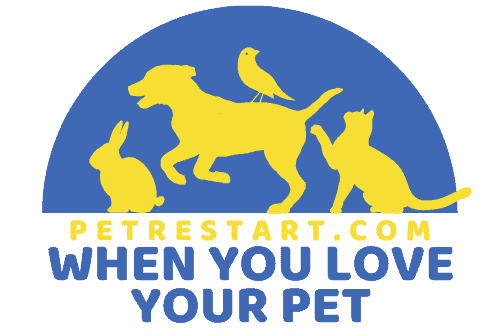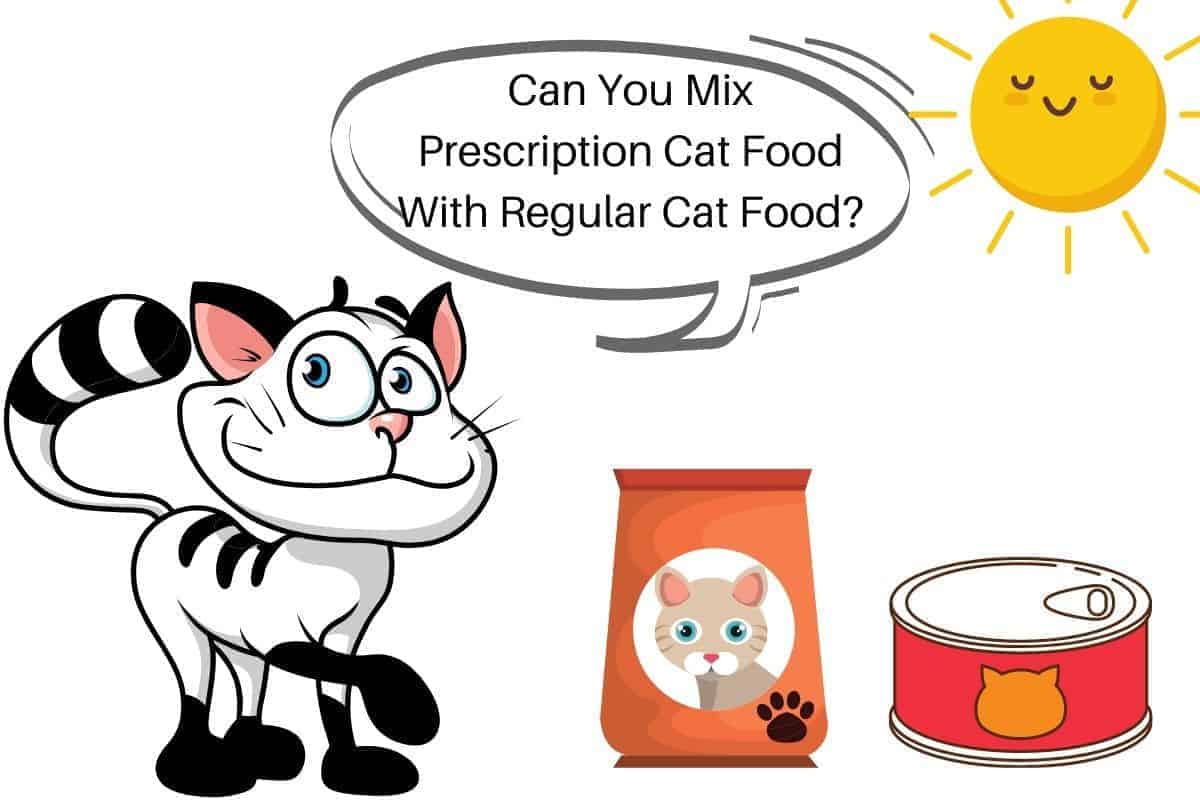Many cat food brands make regular food and prescription food. The regular food is for healthy cats that have no medical conditions. This food may differentiate food for various life stages, but it is not a prescription diet. Prescription diets are for cats that have been diagnosed with specific diseases. Prescription diets are aimed at managing various health conditions. Some cat owners ask if you can mix prescription cat food with regular cat food.
Although it is not harmful to mix regular food with prescription food, it defeats the purpose of having prescription food. Prescription food is formulated to enhance and reduce certain nutrients in the food. If you mix regular and prescription food, the benefits of the prescription diet are lost.
We will examine what constitutes a prescription food and how it differs from regular food. We will then look at what happens to the prescription if you add regular food to it. In the article, we will give examples of prescription diets from Hill’s and Royal Canin cat foods. These are the two most commonly prescribed by veterinarians. Other brands make prescription diets, but they are not as popular with veterinarians. Please follow your veterinarian’s advice on which brand to choose.
Prescription Cat Food.
Prescription cat food targets several different health conditions in cats. There are foods for weight loss, renal failure, bladder, and urinary tract health, skin conditions or allergies, and sensitive gastrointestinal systems.
Metabolic Or Weight Loss Foods.
A great many cats suffer from obesity in our modern era. Some cats live exclusively indoors, which affects their energy expenditure as they are generally not as active as cats that roam outdoors. Obesity in cats causes the same problems as in humans. It triggers metabolic diseases such as heart and circulatory system disease, hypertension, diabetes, and increased strain on the liver, kidneys, and pancreas. Obesity predisposes cats to cancers shortening their life spans. The added weight causes excess pressure on joints, and osteoarthritis develops.
Hill’s Metabolic Diet and Royal Canin Weight Loss Food are two examples of weight-loss food that addresses obesity. The food is designed to feed a similar quantity to regular food, but it has reduced calories. The cats do not feel hungry and lose weight. Once the cat has lost weight and is at its ideal weight, most veterinarians recommend keeping the cat on these prescription diets to maintain the cat at a suitable weight. If you mixed this food with regular food, you would be adding calories in an unknown amount and defeat the object of having a reduced calorie intake. It would make the management of the cat’s weight much less scientific.
Renal Or Kidney Support Prescription Diets
Cats with reduced kidney function often feel nauseous and are disinclined to eat. They need a very palatable food with concentrated nutrients as the cat is likely to eat limited quantities. The cat must get as many nutrients and calories as possible from a small amount of food. Antioxidants are essential to neutralize free radicals and assist the kidneys in cleaning the body.
Hills Prescription diet k/d and Royal Canin Renal Support are two foods that address kidney issues. As you can imagine mixing food that has been specially formulated for kidney disease with regular food will be detrimental to the cat’s kidneys and reduce the life span. In all likelihood, the cat will not eat the regular food mixed in as it is not appetizing enough to tempt a nauseous cat.
Prescription Urinary Support Cat Food.
Some cats ( usually males) are prone to developing painful, life-threatening urinary stones or monoliths and cystitis. These cats may struggle to urinate because of the inflammation and the presence of bladder stones. The food helps to dissolve struvite stones and reduces the possibility of new stones forming. It achieves this by carefully balancing and controlling the magnesium, phosphorous, and calcium levels.
Hills Urinary Stress c/d and Royal Canin Urinary SO food are examples of food that addresses urinary issues. A cat that is susceptible to the development of urinary stones and cystitis will remain at risk their entire lives. They must stay on this food, and mixing it with regular food will disturb the mineral balance resulting in an increased risk of bladder stones forming.
Prescription Gastrointestinal Support Foods.
Cats can have a variety of bowel issues that may be chronic or acute diseases. An example of chronic gastrointestinal disease would be inflammatory bowel disease or chronic pancreatitis. These are life-long diseases that must be managed with diet. A short-term illness that may require gastrointestinal support would be a bout of gastroenteritis or diarrhea. These foods are made with pre-digested or easily digestible proteins, probiotics, and prebiotics. These components are essential to provide nourishment and restore the gastrointestinal flora of the gut.
Hills Gastrointestinal Biome and Royal Canin Gastrointestinal food provide the necessary dietary requirements to aid gut health. Mixing these prescription diets with regular food would place unnecessary stress on the gastrointestinal system. You could compromise the entire treatment and end up with a cat struggling with diarrhea, vomiting, and stomach cramps again. Cats lose ground very quickly if they do not have sufficient calories and nutrients and can die rapidly.
Prescription Food For Allergies.
Over the years, selective breeding for specific traits or appearance has resulted in cats with allergies or intolerances to certain foods. These can be a variety of foods. Grains and legumes are common allergens as well as specific proteins. Foods that help address allergies usually include novel proteins. Novel proteins are meat sources that the cat has not encountered before. For example, ostrich, duck, turkey, or game may be used for the protein source. The concept behind this is that the body has not encountered these proteins before and will not react to the new form of protein. The foods are usually grain and legume free. Vegetables and fruit may be used as a carbohydrate and fiber replacement for grains.
Hill’s Food Sensitivities or Hill’s sensitive Stomach and Skin and Royal Canin Anallergenic, Hypoallergenic, and Sensitivity Control are used to combat food allergy or intolerances in cats. It takes a minimum of three weeks of consistent diet to see any results in food intolerances or allergies. Generally, the diet must be maintained for a few months to see clear results from the prescription food. As I am sure you will understand, mixing regular food into these diets will totally destroy any benefit your cat might obtain from the prescription diets.
Diabetes Prescription Cat Food.
Diabetes is a life-long disease requiring close dietary monitoring and care. Diets in this category have well-controlled glucose and carbohydrate levels to maintain stable blood glucose levels. Royal Canin Glycoblance food and Hill’s m/d food establish and maintain appropriate blood glucose levels. Adding regular food to diabetic prescription food could cause your cat to have a diabetic crash that could be life-threatening.
Dental Care Prescription Diets.
Prescription diets to improve oral and dental health usually include fibers in the pellets. The fibrous pellets help remove tartar build-up on the teeth—this aids in the gum and dental health. Royal Canin Dental and Hill’s Oral Care are two examples of dental food. This is possibly the only food that you can mix with regular food. The cat will still get the benefit of chewing fibrous pellets if they are mixed with regular pellets. Sometimes veterinarians will recommend mixing the two.
When Could You Mix Prescription And Regular Cat Food?
The only time that you could mix prescription and regular food is if you have an open bag of prescription food leftover and you wish to use it with a cat with no health issues. There would not be a problem in mixing this food with regular food. It will not cause any health issues for the healthy cat.
Conclusion.
Prescription foods are formulated to address specific health conditions. Dietary management will not be effective if you mix prescription foods with regular cat foods. It is essential to feed only the prescription food to manage the health issue. Dietary management of health issues can lessen the need for medications that have potentially harmful or adverse side effects.
References.
Ohlund, M., Palmgren, M., and Holst, B.S. 2018. Overweight in adult cats: a cross-sectional study. https://www.ncbi.nlm.nih.gov/pmc/articles/PMC5775588/




